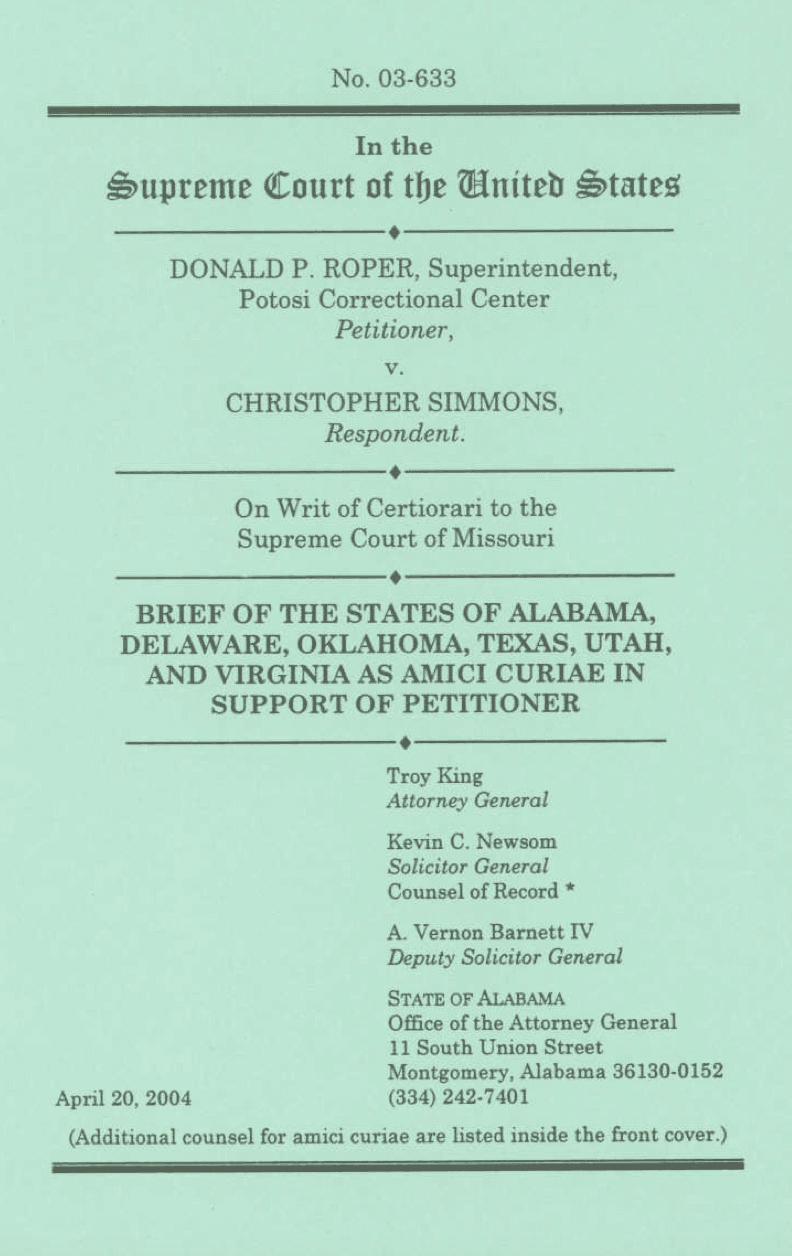
Summary of Argument
Amici's experience strongly indicates that a bright-line rule categorically exempting 16- and 17-year-olds from the death penalty - no matter how elaborate the plot, how sinister the killing, or how sophisticated the cover-up - would be arbitrary at best, and downright perverse at worst. Using abbreviated descriptions of a handful of murders committed by "juvenile" offenders currently on Alabama's death-row, this brief will show that, despite their chronological age, at least some 16- and 17-year-old killers most assuredly are able to distinguish right from wrong and to appreciate fully the consequences of their murderous actions. Because a prophylactic constitutional rule taking capital punishment off the table for all such offenders would have no footing in the real world, it should be rejected.
Although this brief uses examples drawn from Alabama to make its point, the other amici hasten to note that their experiences have been no different. There simply is no basis to conclude that 16- and 17-year-olds are categorically incapable of committing heinous (and meticulously planned) murders, and there is no justification for categorically exempting them from the death penalty.